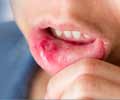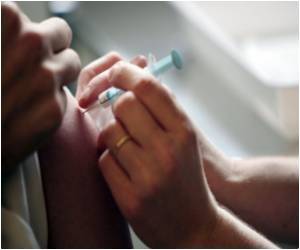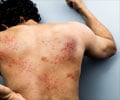A new study published in the Journal of Infectious Diseases reveals that the short term risk of suffering from shingles is low among people who have already experienced an episode of the disease.

Researchers reviewed electronic health records and monitored recurrence of shingles for more than 6,000 individuals. They found fewer than 30 cases of recurrent shingles in an average of two years of follow-up and little difference in the rate of recurrence between the vaccinated and unvaccinated population.
"This study's findings are important because we found that the risk of having a recurrent shingles episode is not as high as previous research indicates," said Hung-Fu Tseng, PhD, MPH, study lead author with the Kaiser Permanente Southern California Department of Research & Evaluation in Pasadena, Calif. "We now have empirical data that show the risk of recurrence is low among an elderly population who did not have compromised immune systems, regardless of their vaccination status."
More than 1 million people develop shingles every year in the United States. Shingles is a painful contagious rash caused by the dormant chickenpox virus which can reactivate and replicate, damaging the nerve system. The elderly are especially vulnerable because immunity against the virus that causes shingles declines with age.
When the Food and Drug Administration approved the shingles vaccine in 2006, the agency said that having an episode of shingles boosts immunity and suggested it was unlikely that people would experience a recurrence. It further stated that the effectiveness of the vaccine in preventing repeat episodes had not been proven in clinical trials because trials have not been conducted.
By contrast, the Centers for Disease Control and Prevention's Advisory Committee on Immunization Practices recommended the herpes zoster vaccine for people ages 60 and older, including those who reported a previous episode.
Advertisement
Researchers studied electronic health records for 1,036 vaccinated and 5,180 unvaccinated Kaiser Permanente members aged 60 and older. The vaccinated population included members who received vaccines between 2007 and 2010. The zoster vaccine is not recommended for patients with immune systems that have been compromised as a result of cancer or other medical conditions, so they were excluded from this study.
Advertisement
This is the latest in a series of published Kaiser Permanente studies conducted to better understand vaccine effectiveness and safety. Among these studies were:
- In 2011, Dr. Tseng was a lead researcher in a Vaccine Safety Datalink study published in the Journal of Internal Medicine that found the herpes zoster vaccine to be safe.
- Also last year, Dr. Tseng published a study in the journal Vaccine that found that administering the pneumococcal and the herpes zoster vaccines at the same time is as beneficial as if they are administered separately.
- On top of that study, Dr. Tseng published a study in 2011 in the Journal of the American Medical Association that found that the shingles vaccine is associated with a 55 percent reduced risk of developing the disease.
- In 2010, another study by Dr. Tseng in JAMA found the pneumococcal pneumonia vaccination is not associated with a reduced risk of heart attacks or strokes in men.
- Two Kaiser Permanente studies found that the combination vaccine for measles, mumps, rubella, and chickenpox is associated with double the risk of febrile seizures for 1- to 2-year-old children, compared to same-day administration of the separate vaccine for MMR (measles, mumps, rubella) and the varicella vaccine for chickenpox.
- Other Kaiser Permanente studies found that children of parents who refuse vaccines are nine times more likely to get chickenpox and 23 times more likely to get pertussis (commonly known as whooping cough), compared to fully immunized children.
- Another study found that herpes zoster is very rare among children who have been vaccinated against chickenpox.
Source-Eurekalert













